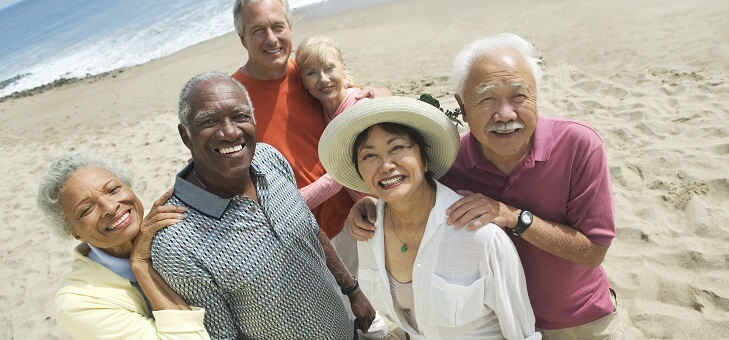Baby boomers sometimes get a bad rap in the public sphere.
Critics claim they are selfish and entitled, don’t care about the environment and are holding on to their money and their house.
But a report by advocacy group COTA (NSW) – 50+ What Older People Think – delivers a very different picture.
“The results from the research challenges the idea that the descriptor of ‘older people’ or ‘seniors’ translates to a homogenous group of people that holds the same attitudes and values on a range of issues that are impacting this country,” the report states.
“If we describe older people as those individuals over the age of 50, this is effectively half of a possible lifespan.
Read: What baby boomers want in retirement living
“As a society, we do not attribute the same attitudes and values to all those under the age of 50 and nor should we for those over this mid-life point.”
The report surveyed 6390 older Australians in NSW seeking to discover their attitudes and values, with another eight online focus groups exploring the issues further.
The participants’ top-four concerns were climate change, housing affordability, homelessness and COVID.
“The results reiterate what COTA NSW already knew – that older people are not a homogenous group,” the report states.
Read: Boozy boomers given a dementia warning
“Like the general population, older people hold different views on a range of issues that may confirm or challenge assumptions that are often based on gender, age cohort, income or geographic location.”
The results were unequivocal –climate change is the top concern with more than half of respondents indicating that this was a primary concern.
One respondent said: “I believe that older people have a role in convincing people that things have to be done, we don’t have an option. I’m already seeing it.”
The report also found:
- 81.7 per cent of respondents believe Aboriginal and Torres Strait Islander peoples should be recognised in the constitution.
- 75 per cent agree with the statement that cultural diversity has had a positive impact on Australia.
- Climate change was the most significant environmental challenge, followed by loss of plant and animal species and drought and drying.
Respondents were also concerned that services were increasingly only able to be accessed online.
About half said it was becoming harder to access information and services without using the internet.
The report states that many older people found themselves at a “digital disadvantage”, particularly in accessing medical, social and financial services.
However, while 62.4 per cent said they found it difficult to keep up with changes in technology, only about 20 per cent said they were interested in training.
And they were on the fence about the concept ‘it was better in my day’.
Read: Super set to end the year in the red
While half said they had better social and economic opportunities during their life than younger people, 19 per cent said it was about the same and 21 per cent said it was better for younger people.
Those who said life today was better for younger people cited better education and career opportunities, with many older women saying there had been limited opportunities available to them.
“Many female participants felt that the restrictions they experienced as young women had a significant impact on their life choices and this has improved greatly for younger generations,” the report states.
If you enjoy our content, don’t keep it to yourself. Share our free eNews with your friends and encourage them to sign up.

